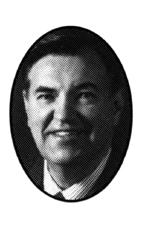Madam Speaker, in 1990 the 47 countries and governments of the francophone community declared March 20 the Journée internationale de la Francophonie. It was on March 20, 1970 that the Agence de coopération culturelle et technique (ACCT) was founded in Niamey, Niger. This year, the Journée internationale de la Francophonie marks the 25th anniversary of the ACCT, which, as it happens, is directed by a Canadian, Jean-Louis Roy. It is interesting to remember that the first secretary general of that organization, Jean-Marc Léger, was also a Canadian.
Today, I would like to pay tribute to the visionaries of the Francophonie, men like Senghor, Diori and Bourguiba from newly independent countries who dreamed of an assembly that would establish new lines of dialogue, co-operation and solidarity between French-speaking nations. Madam Speaker, let me quote Léopold Senghor, who attributed to the Francophonie "an all-encompassing humanism that encircles the planet". Today more than ever, we must be guided by this humanism if the Francophonie is to become an even more dynamic forum.
The recent tragic events in French-speaking countries concern us directly, indeed command our attention. The Francophonie is being called upon to take a stand and I give my word in this House that Canada will support it in its efforts.
Next week, as I said in reply to a question from a colleague in this House during question period, I will have the honour of meeting my colleagues from French-speaking nations around the world. Together we will discuss ways of strengthening French-speaking institutions in preparation for the next Summit of heads of state and government in Cotonou, Benin.
These summits provide an opportunity to promote common objectives. Canada plays an important role at the summits, represented by the Canadian government, and also of course by the governments of Quebec and New Brunswick, who play a very important and useful role there.
This felicitous formula, which led to harmonious relations between France, Canada and Quebec, was the result of lengthy negotiations by intelligent, resourceful people respectful of the interests of the parties concerned.
Because he is here with us in this House, I would like to mention the exceptional contribution of one of the great archi-
tects of this historic success, the present Leader of the Opposition, who as Canadian ambassador at the time, did an outstanding job of resolving this matter satisfactorily in the interest not only of Canada but also in the interest of Quebec and of the good relations we have always had and wish to maintain with France.
This felicitous formula enabled all speakers of French in Canada, and especially in Quebec, to play a role internationally. This formula still allows Quebec to play an important and vital role within the Francophonie.
We will continue to promote, within the Francophonie, the basic values which are so dear to our fellow citizens. Earlier, in answer to a question in the House, I mentioned the values of democracy, human rights, equality for women, child welfare and education.
To mark this important day, we had the pleasure to participate in a ceremony where we unveiled, along with officials from member countries of the Francophonie, their ambassadors and several fellow citizens who are active in that field, a postage stamp commemorating the 25th anniversary of the Canadian Technical and Cultural Co-operation Agency.
I also had the pleasure of handing out Francophonie awards to deserving students and teachers from across Canada. This initiative is a reminder that the vitality of our linguistic and cultural heritage was, and remain, essential to our unity, our specificity and our existence as an independent entity.
Canada is well aware that the Francophonie is not a territorial issue. The greatest lesson we learned is that Francophonie knows no boundaries: It is a universal reality. The Francophonie in Canada, which thrives in Quebec, New Brunswick, Ontario, Manitoba and other regions, and which I salute, must of course rely on a strong, dynamic and credible worldwide francophone movement.
Let us not forget that over eight million Canadians can speak French. This number includes of course close to 75 per cent of Quebecers, but also over 25 per cent of the other Canadians, including close to 1.2 million in Ontario, half a million in western Canada, and some 400,000 in the Maritimes.
In closing, today, we celebrate the Francophonie and a language which is so dear to us. The French language spread throughout the world and is enriched by the different accents from various islands, plains, ricefields and bushes, where it is thriving.
I invite all members in this House and in other Canadian legislative assemblies to celebrate together this Journée de la Francophonie internationale, which marks the beginning of a week dedicated to the Francophonie in Canada.

